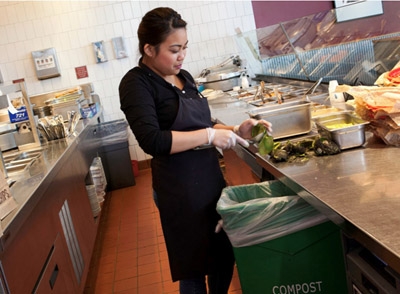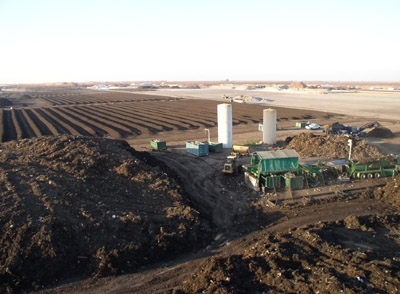Recycling Food Scraps and Plant Debris
If your business is already recycling paper or bottles and cans, adding food scraps collection is a natural next step that can save money and have a big environmental impact.
When food scraps are sent to the landfill, they decompose anaerobically and produce methane, one of the most potent greenhouse gases responsible for climate change. On the other hand, composting this material significantly reduces the amount of methane produced.
Restaurants in particular can benefit from compost collection, since food scraps make up about 60% of a sit-down restaurant’s waste stream. And food scrap collection services are often less expensive than garbage.

Businesses that generate a lot of organic material can realize cost savings and environmental benefits by composting on-site. This guide details 7 steps to help you evaluate, plan, and launch an on-site composting project.



